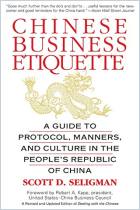If you are negotiating with people from a different country, you need to understand how cultural differences affect your conversation. The United States and China are currently conducting high-stakes trade negotiations. How do their negotiation styles differ? Li Fang, writing for tech and business news platform Huxiu.com, explains the differences between American and Chinese negotiators. This article is for anyone who wants to sharpen their intercultural competence and become more sensitive to nuances that occur during negotiations.
As Chinese and US delegations seek to arrange a trade deal, the differences in negotiation styles – due to different cultures and business norms – come to the fore.
Chinese and Americans have a different concepts of negotiating. For Americans, it implies straightforward discussions: a clear-cut back-and-forth with an end goal in mind. The Chinese may negotiate this way, but they may also be more reserved in revealing their positions or may have another agenda that they keep close to the vest. For example, negotiations over food and drinks are often merely a gesture – a demonstration of good faith. Most dinnertime agreements never come to fruition. In addition, the Chinese are comfortable using things outside the scope of the negotiations as leverage. Americans may be uncomfortable with this or even deem it an unacceptable move.
The Chinese usually approach negotiations by first finding consensus on the size of the deal. Say, one side proposes a ¥10 billion ($1...




















Comment on this summary or Démarrer une discussion